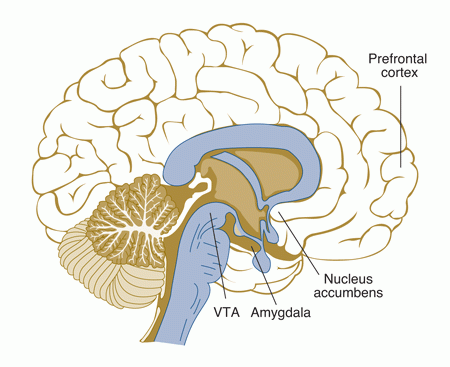Prozac During Teen Years Has Long-Lasting Effects; Antidepressant Weakens Emotional Strength Into Adulthood

People treated with Prozac as adolescents may later experience a decreased emotional resilience in adulthood, say researchers investigating the long-term safety of antidepressant medications. Although such adults may be less prone to getting the blues, they tend to experience greater anxiety when responding to life’s emotional challenges, suggesting a newfound complexity in the long-term treatment of mental health disorders.
Today, some 3.9 percent of American adolescents receive an antidepressant, with five percent expected to experience a major bout of depression at one time or another. But not much is known about the longer range effects of antidepressants such as fluoxetine, a selective-serotonin reuptake inhibitor (SSRI) better known by its brand name, Prozac.

In an animal study of rats and mice, investigators found that exposure to fluoxetine during adolescence — in a regimen beginning some 35 days after birth — exacted lasting neurochemical changes in the brain. During times of stress, the drug modified chemical signals gushing from the brain’s ventral tegmentum (VTA), a region responsible for mood regulation.
"These findings underscore the complexity of drug and intracellular manipulations in the immature brain," lead investigator Sergio D. Iniguez wrote in the study, which was published on Wednesday. It was a collaboration among scientists at the University of California at San Bernardino, Florida State University, Mount Sinai School of Medicine, the University of Maryland, and the Massachusetts Institute of Technology.
Like so many aspects of medicine, the effect of such drugs on the brain may prove to be much more complex than we presently understand. Iniguez and his colleagues speculated that perhaps Prozac causes other, unstudied changes elsewhere in the brain. Or, perhaps, the adolescent and adult brains respond differently to stress in a fundamental way.

In the study, the investigators administered 10 mg/kg twice daily for 15 days to male adolescent mice, finding that the drug appeared to help alleviate symptoms of depression in mice, as measured by reactivity to varying laboratory stressors. However, those mice later displayed greater anxiety responses as adults, along with decreases in the expression of extracellular signal-regulated kinase (ERK2) 1/2-related signaling within the brain’s VTA. Although not prone to depression, these animals appeared more susceptible to anxiety.
The investigators also found that they could mimic the antidepressant effect of Prozac by directly suppressing such signalling, or boosting it. “These findings demonstrate that exposure to [Prozac] during adolescence modulates responsiveness to emotion-eliciting stimuli in adulthood, at least partially, via long-lasting adaptations in ERK-related signaling within the VTA, Iniguez wrote. “Our results further delineate the role ERK plays in regulating mood-related behaviors across the lifespan.”
Source: Inguez, Sergio D., Alcantara, Lyonna F., Warren, Brandon, L., Riggs, Lace M., Parise, Eric M., Vialou, Vincent, et. al. Fluoxetine Exposure during Adolescence Alters Responses to Aversive Stimuli in Adulthood. Journal of Neuroscience. 2014.



























